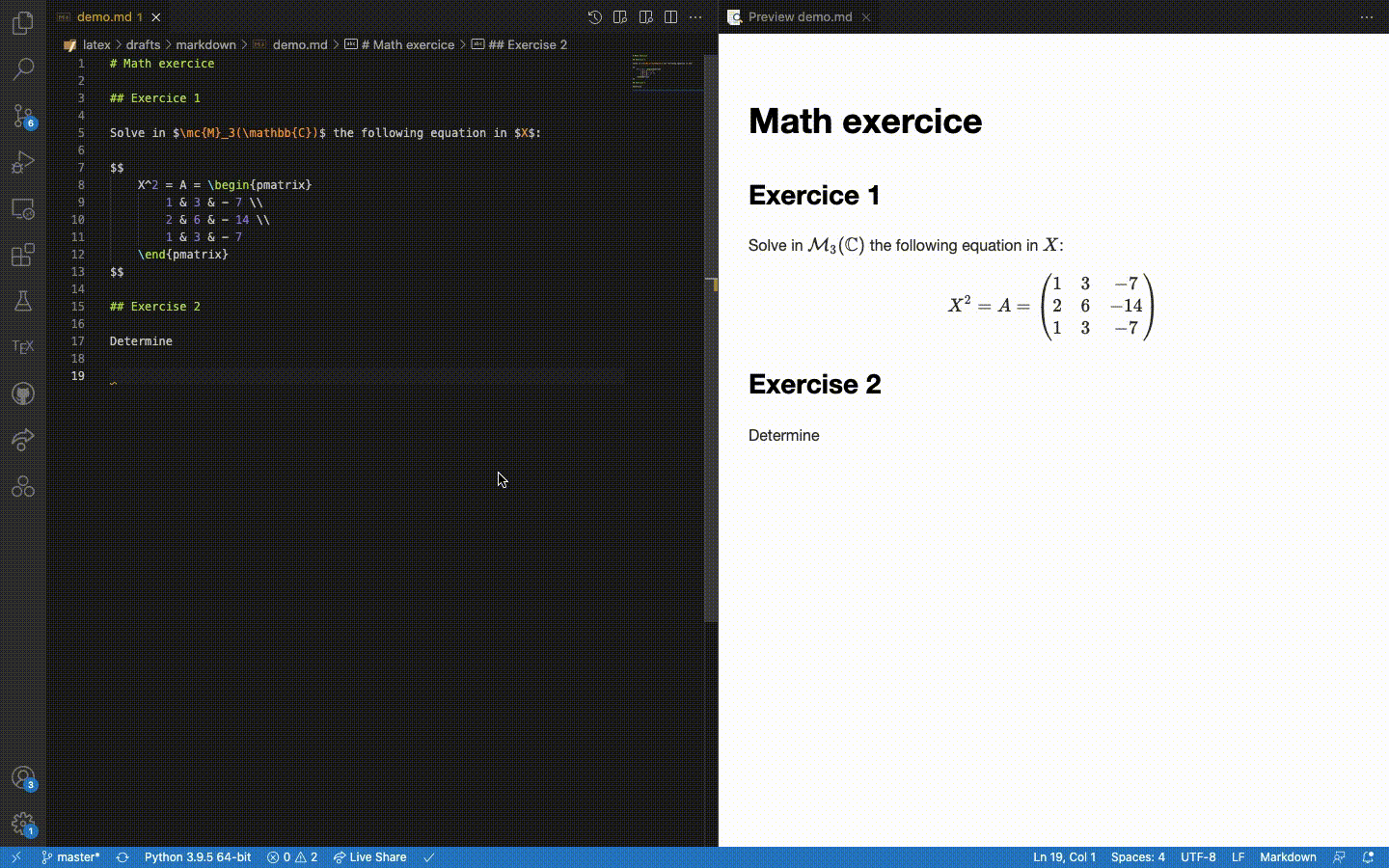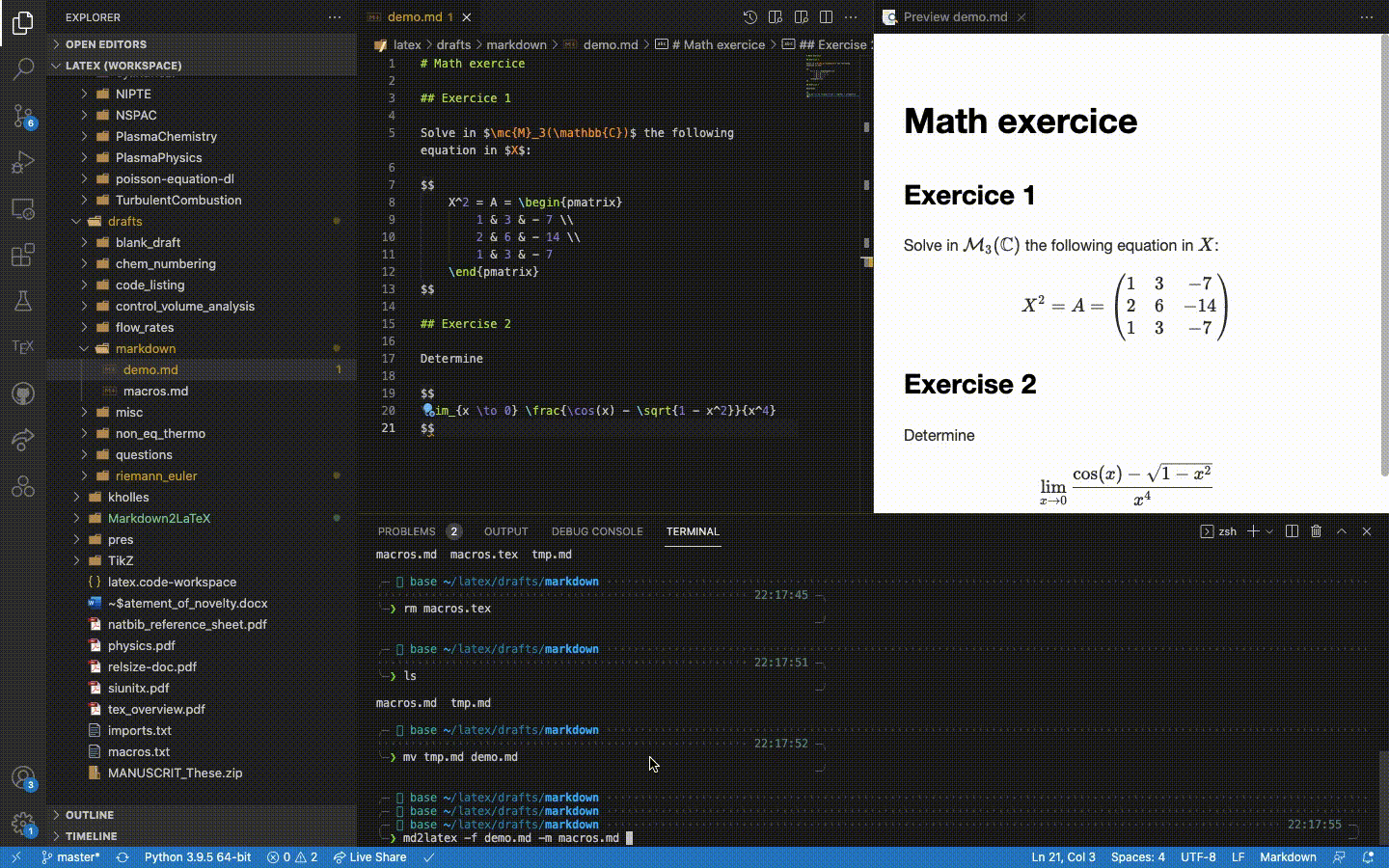Taking scientific notes efficiently using Markdown + KaTeX
As a PhD student, reading scientific articles and textbooks has occupied a significant amount of my time. I have been at some point overwhelmed by the quantity of knowledge to process and synthesize at the same time. Here is the workflow that I have found to try to keep up to date with all the research projects that I have going on. It involves VSCode, Markdown and a little library that I have written Markdown2LaTeX.
I have been taking notes on paper notebooks for quite a long time at the beginning of my PhD, stacking them one on top of the other over time. When I wanted to go back to some thoughts that I had it was always a tedious process to find them back in my pile of notebooks. After that I would usually start writing a TeX about it, translating whatever I had written a while ago. This workflow had several drawbacks: it was not easy to back go over ideas that I had at some point and remembering exactly what I was thinking at that time. Since ideas at the beginning are not well formed and finished it does not really make sense to write it to TeX at that moment.
Then I discovered Markdown in VSCode using Markdown Preview. This tool allows to write down Markdown and instantly see your writings on a side tab (see screenshot below). Using KaTeX, it is possible to write math as TeX quickly and efficiently with a real time synchronization on the preview tab (definitions of KaTeX macros is also possible). I have since created a single workspace to hold all my Markdown notes files (creating symbolic links whenever necessary). It has allowed me to take and store notes at the same place and is also a great tool to interact with others during visioconferences without needing to scribble some complicated math formula on your notebook and then showing it on the webcam.

The Markdown+Math and Markdown Preview Enhanced extensions from VSCode need to be downloaded and then you can start writing math using $$...$$ delimiters.
Taking this logic a step further, after a Markdown file is written and cleaned, it can be converted directly into a LaTeX file using Markdown2LaTeX. Running the following command
md2latex -f demo.md -m macros.md
allows to retrieve the LaTeX file. A file where KaTeX macros are defined can be supplemented and macros can be converted to TeX format.
